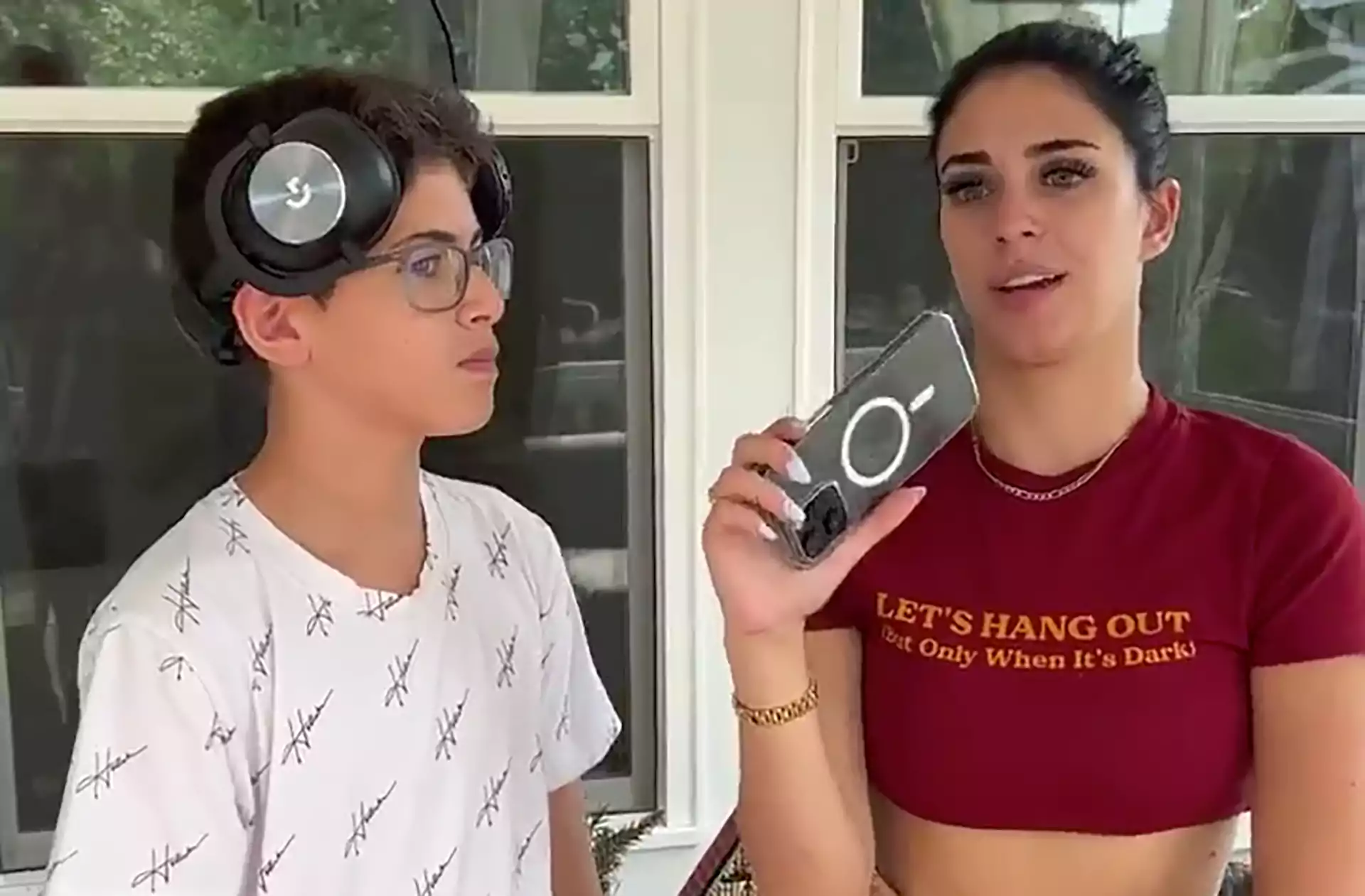Can a digital life truly be private in the age of the internet, especially when content creation is a livelihood? The recent controversy surrounding Camilla Araujo, and the alleged leak of her OnlyFans content, throws a harsh light on this very question, prompting a wider examination of online privacy, consent, and the ethical responsibilities of both content creators and their audience.
The situation has ignited a fervent discussion across various online platforms, with many expressing deep concern not just for the individual, Camilla Araujo, but for the wider community of content creators who navigate the often-treacherous waters of the internet. Araujo's content, known for its blend of artistic photography, personal narratives, and occasional intimate glimpses, has earned her critical acclaim and a dedicated following. This success, however, has been overshadowed by the allegations of a significant content leak, creating an environment of heightened scrutiny and concern.
The allegations center around the unauthorized distribution of Araujo's intimate content, resulting in an unprecedented breach of privacy. The extent of the leak, reportedly encompassing hundreds of photos and videos shared without her explicit consent, has amplified the gravity of the situation. This has, in turn, caused a ripple effect, raising crucial questions about the measures, or lack thereof, that are in place to protect creators from such violations.
- Discover Somali Wasmo On Telegram Latest Updates Channels
- Vegamovies 4k Guide Watch Download Movies Your Ultimate Guide
| Full Name: | Camilla Araujo |
| Online Alias: | @camilla_ara1 (Twitter) |
| Content Focus: | Artistic Photography, Personal Narratives, Intimate Content |
| Platform Presence: | OnlyFans, Twitter |
| Alleged Issue: | Unauthorized Leak of Content |
| Impact: | Loss of Followers, Online Harassment, Cancellation of Appearances, Reputational Damage |
| Estimated Monthly Earnings (Camilla Lopez): | $4850 |
| Estimated Yearly Earnings (Camilla Lopez): | $58200 |
| Reference: | Example Profile (This is a placeholder. Replace with a credible source, if available. If such information is not publicly available from a reliable source, omit.) |
The fallout from the leak has been extensive. For Araujo, the consequences have been significant. She has reportedly experienced a decrease in her OnlyFans follower count, faced online harassment, and been forced to cancel several planned appearances. The damage to her reputation has also made it challenging to secure new work. The leak has not only violated her rights as a creator but also raised questions about the legal recourses available to address such severe breaches of privacy, highlighting the need for robust legal frameworks and effective enforcement mechanisms.
The situation also extends to the broader OnlyFans community, an ecosystem of content creators and consumers. The incident has amplified the existing discussions on consent, digital privacy, and the responsibility of social media platforms in safeguarding users content. The proliferation of leaked content is not simply a matter of digital theft; it represents a violation of personal autonomy and an act of emotional distress for those affected.
The leak has sparked varied reactions among fans, ranging from expressions of dismay and staunch support to more complex ethical considerations. The ethics of consuming leaked content has become a central point of conversation. Discussions center around whether the act of viewing and sharing unauthorized content constitutes a form of complicity in the violation. The incident compels a critical examination of the boundaries between personal interest, ethical consumption, and the support of creators.
- Kannada Movies 2025 Your Guide To Films Movierulz Updates
- 2025 Kannada Movies Your Ultimate Guide To Releases Reviews More
The presence of a Reddit thread and a Replit link, purportedly containing the leaked content, has intensified the discussion. These online spaces have become hubs of debate, with users scrutinizing the content, discussing the alleged authenticity, and weighing the ethical implications of accessing the leaked material. Such discussions serve to showcase the deep divisions in the community, highlighting the conflict between respecting the creators right to privacy and the allure of readily accessible content.
The online reactions demonstrate the complex emotional and ethical landscape created by the incident. Some express empathy and support for Araujo, while others struggle with the temptation to access the leaked material, sparking debates about the responsibility of fans and the ethics of consuming leaked content. There is an undeniable tension between personal curiosity and the moral obligation to respect the creator's privacy.
Moreover, this incident underlines the risks associated with the digital landscape. The leak shows how easily private content can be compromised and distributed, thus emphasizing the need for enhanced security measures and strong user protection. It also highlights the difficulties that creators face in maintaining control over their content and protecting themselves from malicious actors.
The importance of consent in content creation is at the core of this discussion. Content creators willingly share their work, but this does not equate to granting a blanket permission for its redistribution. Leaking explicit content without consent constitutes a serious crime with severe consequences, including potential job loss, social stigma, and ostracism. It also highlights the need for a comprehensive understanding of the legal ramifications of such actions.
The case of Camilla Araujo serves as a potent illustration of the challenges that content creators confront in the digital age. It accentuates the critical need for stringent privacy measures, legal protections, and a shared understanding of ethical conduct. The discussions that followed the incident are crucial for safeguarding the rights of content creators and creating a more secure and respectful online environment.
The incident also emphasizes the responsibilities of social media platforms in protecting user data and combating the dissemination of leaked content. Social media companies have an ethical, and in some cases legal, obligation to provide resources for creators to protect their work from potential breaches. This may involve improving security measures, establishing a prompt reporting system for leaked content, and working closely with law enforcement agencies to pursue offenders.
The conversation must expand to include the critical role of content consumers. Each individual has a responsibility to evaluate their behavior and the impact of their choices. This involves reflecting on the ethics of consuming leaked content and considering the consequences of supporting unauthorized distribution. Choosing to ignore the potential for harm is not only unethical but also emboldens those who engage in the harmful practice of content theft.
The fact that alleged leaks of Araujo's OnlyFans content are stirring discussion among fans shows the delicate balance between creator's work and the right to privacy. It has initiated an important conversation about digital security and how the content is created and consumed. By looking at this subject, we are being encouraged to reflect on the ways that we interact online and what can be done to protect both the creators and the consumers.
The case of Camilla Araujo is a crucial reminder that our actions online have very real consequences. By taking steps to protect creators and protect privacy, we can all promote a better online environment.


